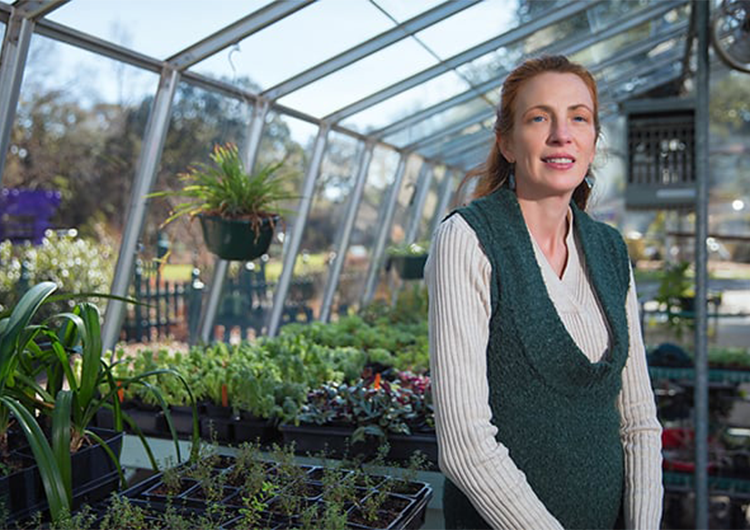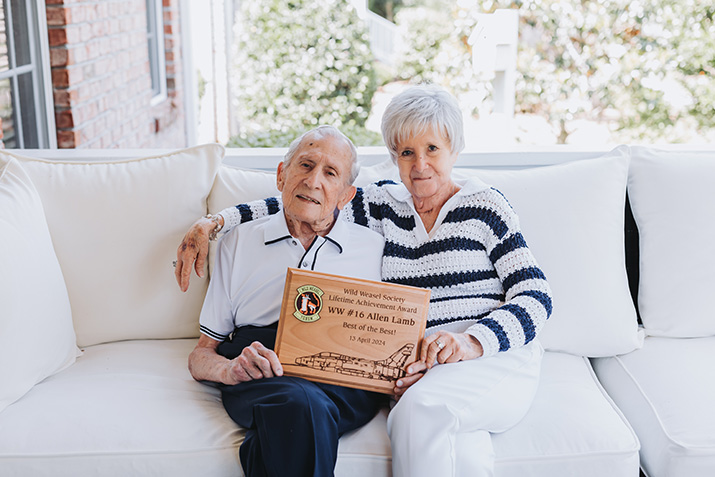Digging in the dirt: The Ability Garden offers healing rooted in nature

The Ability Garden, located on the grounds of the New Hanover County Arboretum, offers opportunities for therapeutic gardening. Heather Kelejian, therapeutic horticulture agent for New Hanover County Cooperative Extension, has worked for the Ability Garden for 20 years. (File photo)
Just as a dip into rich, dark soil allows plants to grow and flourish, people can access the restorative energy of nature by getting their hands dirty at the Ability Garden. Located on the grounds of the New Hanover County Arboretum, the Ability Garden is a non-profit therapeutic horticulture program.
"The Ability Garden is taking nature and all of its forms and using it as a tool to help people feel better regardless of their issue,” said Heather Kelejian, therapeutic horticulture agent for New Hanover County Cooperative Extension.
The Ability Garden grew out of the Friends of the Arboretum’s desire to engage people of all abilities in nature. In the mid-1990s, members of the Friends of the Arboretum identified the lack of accessibility of the Arboretum campus. So, the Arboretum built new sidewalks and paths, improved the parking lot, provided more seating in the gardens, and secured a stop on the city bus line. By 1999, the garden became a program of Friends of the Arboretum and secured funding from the Cape Fear Memorial Foundation.
Kelejian has worked for the Ability Garden for 20 years. She is currently responsible for managing the therapeutic culture program and the greenhouse, and developing workshops and educational opportunities around therapeutic gardening. Kelejian first worked with older adults and now services people of all ages.
“I grew up gardening with my grandmother. She was really helpful,” said Kelejian.
Kelejian has an educational background in human services and loves to be outdoors. “Our basic tenet is to use nature as our tool. That’s what makes us different from other programs. Our approach to therapeutic gardening is simple: weeding can be very therapeutic depending on how you set it up,” she explains. “The gardener could be a stroke recovery patient with loss of movement. We set them up with accessibility to weed the garden which works on fine motor skills.”
Students with behavioral issues are also helped through therapeutic gardening. “We also set up students to weed the garden. It teaches team-building skills to kids who have difficulty working with others. They learn to work together with a defined focus. They really love it. The students become competitive and race against each other to see who can weed the most and who can pull the longest weed root without breaking it. It’s actually so simple, but what manifests is remarkable,” she explained. Kelejian does outreach at two New Hanover County schools.
Often working in the Ability Garden is for socialization, especially for older adults, helping to improve mental and cognitive health. Kelejian also noted that the Ability Garden offers the opportunity to build a personal connection to nature for overall wellness. The program offers workshops for neighborhood associations, adult communities and other groups that express an interest.
Programs for the community are funded through grants, individual donations and monthly plant sales which are an important source of the Ability Garden’s funding. House plants, seasonal herbs, native flowers and a few annuals are for sale at the Arboretum at the Lewis Greenhouse from 9 a.m. to 1 p.m. on the third Saturday of every month. All proceeds go directly back to the Ability Garden programs.
Kelejian concluded, “I have the most amazing job, maybe the best job in New Hanover County. I am paid to dig in the dirt with people. It’s a lot of fun.”
More information about the Ability Garden, including how to get involved or support the organization, is available on its website.



















